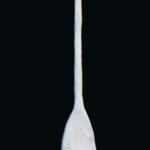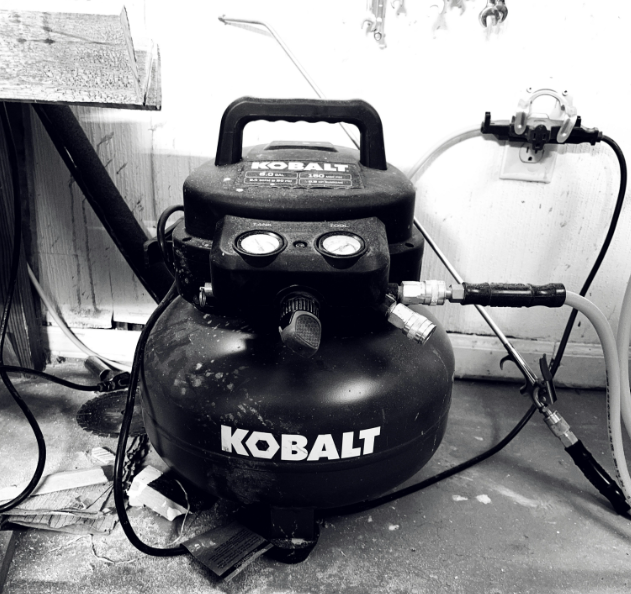Introduction to Air Compressor Maintenance
Maintaining an air compressor is essential for ensuring its longevity, efficiency, and peak performance. Just like any machinery, air compressors are subjected to wear and tear over time, which can impede their functionality if not regularly addressed. Proper maintenance routines not only prolong the life of the equipment but also contribute to safety and reliability during its operation.
One of the most crucial aspects of air compressor maintenance is the regular change of oil. The oil serves multiple purposes: it lubricates moving parts, cools the components, and helps to maintain the integrity of the machine’s internal systems. Over time, the oil can degrade due to contaminants and thermal breakdown, reducing its effectiveness in protecting the compressor. Thus, adhering to a regular oil change schedule is vital.
Skipping oil changes or failing to perform regular maintenance can lead to increased friction between moving parts, overheating, and ultimately, mechanical failure. It is important to understand that each air compressor model may have different requirements regarding oil type and change intervals. Therefore, consulting the manufacturer’s guidelines and adhering to best practices is crucial for maintaining optimal performance.
Additionally, improper maintenance can void warranties and result in expensive repairs or replacements. Consequently, creating a maintenance checklist that includes regular oil changes, air filter inspections, and belt adjustments is advisable. By establishing a routine based on these elements, operators can ensure that their air compressors not only perform efficiently but also remain in good working condition for years to come.
Understanding Air Compressor Oil
Air compressor oil plays a crucial role in the performance and longevity of an air compressor. The types of oil used vary significantly, with mineral oil, synthetic oil, and specially formulated oils designed specifically for air compressor use being the primary options available in the market. Each type has distinctive characteristics that cater to different operational requirements.
Mineral oil is the most conventional choice for air compressors, derived from refining crude oil. It effectively lubricates moving components, reducing friction and wear. However, it may not perform as well under extreme temperatures compared to synthetic oils, which are engineered for enhanced performance. Synthetic oils are created using chemically modified materials, providing superior lubrication, better viscosity stability, and extended service life, particularly in high-demand environments.
In addition to lubrication, the oil in air compressors serves important functions, such as cooling and cleaning. An air compressor generates heat during operation, and oil circulates to dissipate this heat, preventing overheating that could cause mechanical failure. The oil also assists in removing contaminants from the compressor’s interior, maintaining a cleaner operational environment. Therefore, regular oil changes are essential to ensure your compressor functions efficiently and effectively.
Selecting the right type of oil depends on the compressor’s design and its intended application. Using oil not specified by the manufacturer can lead to inadequate lubrication, overheating, and ultimately, equipment failure. It is important to consult the user manual or a professional before making your choice to maintain optimal performance and longevity of the air compressor.
Signs Your Air Compressor Needs an Oil Change
Maintaining your air compressor is vital for its longevity and effective performance. One of the primary maintenance tasks is changing the oil, which lubricates the moving parts and prevents excessive wear. Recognizing the signs that indicate it is time for an oil change can save you from costly repairs and downtime.
One of the most apparent signs that your air compressor needs an oil change is the discoloration of the oil. Fresh oil typically appears clear or amber, but over time, it can darken or become cloudy due to contaminants and wear particles. If you notice a significant change in the oil’s color, it is a strong indication that it is time for a change.
Another indicator to consider is unusual noises emanating from the air compressor. If you begin to hear knocking, grinding, or excessive rattling sounds during operation, it may imply insufficient lubrication due to old or degraded oil. These noises often signify increased friction between moving parts and can lead to further damage if left unaddressed.
Decreased performance of your air compressor is another critical symptom suggesting an oil change is necessary. If you notice a drop in pressure or airflow, it may stem from the oil not adequately lubricating the compressor components. Such performance issues not only hamper the efficiency of the machine but can also affect the quality of work it produces.
Finally, regularly checking the oil level and gauge readings can help you stay ahead of maintenance needs. If the oil level is consistently low or if the readings on the gauge fall outside the recommended range, these are strong indicators that the oil needs to be changed to maintain optimal functionality.
Recommended Oil Change Frequency
Determining how often to change the oil in your air compressor is crucial for maintaining its efficiency and longevity. Various factors influence this oil change frequency, including the type of air compressor, how frequently it is used, environmental conditions, and the specific recommendations provided by the manufacturer. Adhering to these guidelines can help prevent premature wear and costly repairs.
For typical oil-lubricated air compressors, a common recommendation is to change the oil every 100 to 200 operating hours. If the compressor is used in more demanding applications or environments, however, this interval may need to be shortened. For instance, compressors that are utilized in dusty or humid conditions may require more frequent oil changes as contaminants can degrade oil quality more rapidly.
Moreover, the type of oil used in the compressor can also play a significant role in determining the frequency of oil changes. Synthetic oils tend to have a longer lifespan and can withstand higher temperatures compared to conventional oils, thereby extending the intervals between changes. Always refer to the manufacturer’s guidelines to identify the type of oil recommended for your specific model. These guidelines are particularly important as they can dictate not only oil type but also replacement schedules tailored to your application.
For heavy-duty usage, such as in industrial settings, implementing a more consistent maintenance schedule may be beneficial. This approach allows for early detection of potential issues, ensuring that the compressor operates efficiently without risking damage from inadequate lubrication. In conclusion, while general rules provide a useful framework, it is essential to consider individual factors affecting your air compressor to establish the most effective oil change schedule.
How to Change the Oil in Your Air Compressor
Changing the oil in your air compressor is an essential maintenance task that helps ensure optimal performance and longevity of the equipment. Before beginning, it is crucial to take proper safety precautions. Always wear safety goggles and gloves to protect against potential spills. Additionally, make sure the compressor is unplugged to prevent accidental starts during the process.
To perform an oil change, you will require a few necessary tools and materials. Prepare an oil drain pan to collect the old oil, a wrench or socket set for removing the oil drain plug, a new oil filter (if applicable), and the appropriate type of new oil as specified in your compressor’s owner manual.
Start by allowing the compressor to cool down completely, ensuring that any residual heat does not pose a burn risk. Next, position the oil drain pan beneath the oil drain plug, which is typically located at the bottom of the compressor. Use your wrench or socket set to carefully remove the drain plug, allowing the old oil to flow into the pan. Make sure to give it sufficient time to drain completely.
If your air compressor is equipped with an oil filter, it is advisable to replace it at this stage. Use the appropriate tool to remove the old filter and install the new one, ensuring a tight fit. Before reinstalling the drain plug, clean the area around the plug to prevent contamination before adding new oil.
Finally, refill the compressor with fresh oil through the designated inlet. It is essential to adhere to the manufacturer’s recommendations regarding the oil type and quantity to ensure continued efficiency. Once filled, replace the oil drain plug securely. After completing these steps, your air compressor will be prepared for efficient operation.
Troubleshooting Common Oil Change Issues
Changing the oil in your air compressor is a critical maintenance task that ensures optimal performance. However, several common issues can arise during this process, potentially complicating the oil change. One of the most frequent problems individuals encounter is difficulty draining the old oil. This can occur if the compressor is not designed with an efficient oil drainage system. To address this, it is advisable to let the compressor cool down before beginning the oil change, as hot oil can be less viscous and more challenging to manage. Additionally, consider tilting the compressor slightly during the draining process to facilitate complete oil removal.
Another common issue relates to identifying the correct type of oil necessary for your air compressor. Different models and brands may require specific oil formulations to function properly. Always consult the compressor’s user manual to determine the appropriate oil type. If the manual is unavailable, contacting the manufacturer or researching online can provide clarity. Using the wrong oil can lead to subpar performance and potential damage to the compressor, emphasizing the importance of selecting the correct lubrication.
Furthermore, some users may experience excessive oil consumption or leaks after changing the oil, signaling underlying issues with the compressor itself. In such cases, inspecting seals, gaskets, and fittings for any visible damage is warranted. If the problem persists, seeking professional assistance from a technician should be considered to ensure the longevity and effectiveness of the air compressor.
Through awareness of these common issues, users can execute the oil change more effectively, ensuring their air compressor operates efficiently and remains in good condition for years to come.
The Importance of Regular Maintenance Beyond Oil Changes
Maintaining an air compressor involves much more than simply changing the oil at regular intervals. While oil changes are crucial for ensuring the smooth operation of the compressor, they represent just one facet of a comprehensive maintenance strategy. To maximize the performance and longevity of an air compressor, attention must be given to several additional maintenance tasks that contribute to its overall efficiency.
One of the most critical components to monitor is the air filter. Over time, air filters can become clogged with dust, dirt, and debris, leading to reduced airflow and increased strain on the compressor motor. Regularly inspecting and replacing the air filter not only assures a continuous supply of clean air but also enhances the efficiency of the entire system. This routine task plays a vital role in maintaining optimal air quality and compressor performance.
In addition to air filters, inspecting hoses and connections is imperative for preventing potential leaks or failures. Hoses that are worn, cracked, or improperly connected can lead to significant drops in efficiency and may even cause damage to the compressor itself. Conducting periodic inspections to ensure all hoses are in good condition can save time and costly repairs in the long run.
Another essential maintenance task is general cleaning. Accumulated dirt and debris around the compressor not only pose a safety hazard but can also impede airflow, leading to overheating. Regularly cleaning the unit helps maintain a safe environment and also ensures that the compressor operates at peak efficiency.
Overall, maintenance must encompass various elements beyond oil changes, including air filter upkeep, hose inspections, and holistic cleaning. By embracing a comprehensive approach to maintenance, users can significantly enhance the performance and durability of their air compressors. Regular attention to these tasks ultimately leads to improved reliability and efficiency, ensuring the compressor performs its best over time.
Environmentally Friendly Oil Disposal
Disposing of old compressor oil is a critical aspect of maintaining not only your equipment but also the environment. Many regions have strict local regulations governing the disposal of hazardous materials, including oil used in air compressors. Adhering to these regulations is essential to prevent environmental contamination and avoid legal consequences.
To start, check with your local waste management authority to understand the regulations in your area. Many cities and counties have guidelines on how to dispose of used oil. They may also provide a list of approved disposal facilities, where the old oil can be dropped off safely. Following these local guidelines ensures compliance with environmental laws and assists in the preservation of local wildlife and natural resources.
Another environmentally friendly option is recycling. Many oil change centers, auto repair shops, and specialized recycling facilities accept used compressor oil. These facilities process the oil, allowing it to be refined and reused, significantly reducing waste and promoting a sustainable approach to oil management. It’s advisable to contact local recycling centers to confirm if they accept compressor oil and to understand their disposal procedures.
Additionally, best practices in oil disposal can significantly reduce your environmental footprint. Always store used oil in a sealed, leak-proof container to prevent spills during transportation. Label the container clearly to avoid confusion and ensure safe handling. Do not mix used oil with other substances, as this can complicate the recycling process. If possible, plan to dispose of the oil during trips to other waste disposal errands to minimize your carbon footprint.
By understanding and implementing responsible oil disposal methods, you contribute to a healthier environment while adhering to regulations. Being proactive in this aspect not only helps the planet but also promotes best practices within your community.
Conclusion and Final Tips
Regular maintenance of your air compressor, particularly through timely oil changes, is crucial for ensuring optimal performance and longevity. Just as regular oil changes are essential for a vehicle, the same principle applies to air compressors. Failing to change the oil at prescribed intervals can lead to poor performance, increased wear on internal components, and ultimately result in costly repairs or premature equipment failure.
The frequency of oil changes for your air compressor can vary based on factors such as usage intensity, the type of oil used, and the manufacturer’s recommendations. A general guideline suggests changing the oil every 50 to 100 hours of operation, or at least once a season for less frequently used units. It is essential to consult your air compressor’s manual for specific guidance tailored to your model. Additionally, keep an eye on the oil color and consistency; dark or gritty oil is a sign that it should be changed.
To further extend the life of your air compressor, consider these final tips: Regularly inspect the unit for any leaks or wear, clean or replace air filters as needed, and ensure that the compressor is operated within recommended temperature and pressure ranges. Maintaining the correct oil level is equally important; always check the oil level before prolonged use. Lastly, preserve the longevity of your air compressor by adhering to a scheduled maintenance plan, which includes routine oil changes, to avoid unexpected breakdowns and keep your equipment working efficiently.






